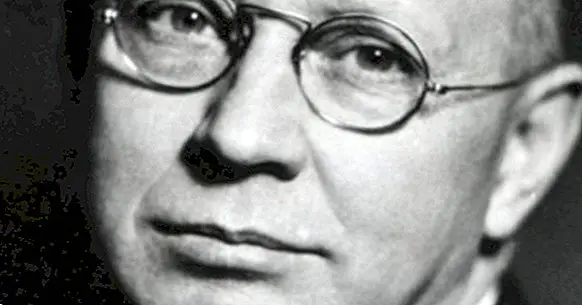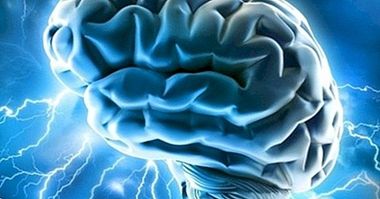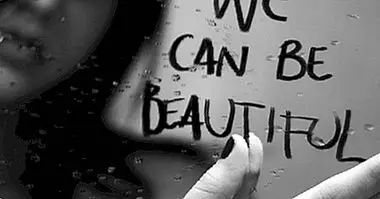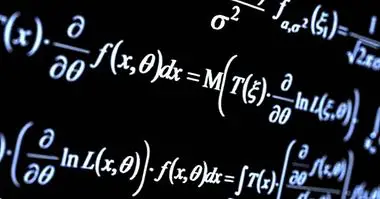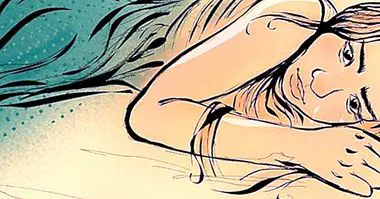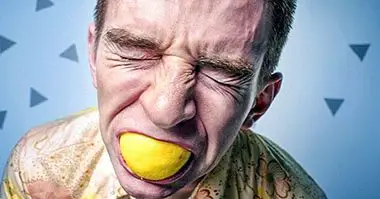The deductive behaviorism of Clark Hull
One of the main and historically most important theoretical currents of psychology is behaviorism. This current aims to explain the behavior and human action from the objective analysis of behavior, which is understood as the only demonstrable correlate of the psyche and generally ignoring mental processes due to the impossibility of observing them empirically.
Throughout history, multiple developments have arisen within behaviorism, which have been varying the approach or way of understanding behavior. One of them was drawn up by what would be the forty-fourth president of the APA, Clark Leonard Hull: we are talking about deductive behaviorism or deductive neobehaviorism .
- Related article: "Behaviorism: history, concepts and main authors"
Brief introduction on behaviorism
Behaviorism is based on the intention of making the study of the human psyche an objective science based on evidence, moving away from hypothetical constructs that can not be demonstrated. It is based on the premise that the only thing truly demonstrable is the behavior , based on the association between stimulus and response or between behavior and consequence to explain human behavior.
However, initially it does not consider the mind or mental processes as part of the equation that explains or influences behavior.
Moreover, the passive fundamental subject is considered, a receptacle of information that simply reacts to stimulation . This would be the case until the arrival of neoconductisms, in which the existence of demonstrable forces characteristic of the subject begins to be considered. And one of the most well-known neoconductions is Hull's deductive behaviorism.
- Maybe you are interested: "History of Psychology: authors and main theories"
Hull and deductive behaviorism
Starting from the prevailing logical positivism of the epoch and Skinner's developments regarding the reinforcement of behavior, Thorndike and Pavlov, Clark Hull would elaborate a new way of understanding behaviorism.
In methodological, Hull considered that it is necessary that behavioral science starts from the deduction, proposing a hypothetico-deductive model in which from an initial premises based on observation it is possible to extract, deduce and later check different principles and subteories. The theory had to maintain coherence and to be able to elaborate from the logic and the deduction, using models based on the mathematics to be able to elaborate and to demonstrate their theories.
Concerning behavior, Hull maintained a functional perspective: we acted because we needed to do so in order to survive, being behavior the mechanism by which we managed to do it. The human being or the organism itself ceases to be a passive entity and becomes an active element that seeks survival and the reduction of needs.
This fact is a milestone that incorporates into the typical stimulus-response scheme a set of variables that intermediate between the independent variable and the dependent variable in said relationship: the so-called intervening variables, variables of the organism as the motivation. And although these variables are not directly visible, they can be deduced mathematically and tested experimentally.
From your observations, Hull establishes a series of postulates they try to explain the behavior, being the impulse and the habit the central components that allow to understand phenomena like the learning and the emission of conducts.
The drive or the impulse
One of the main theories arising from Hull's deductive neobehaviorism is the theory of impulse reduction.
The human being, like all creatures, It has basic biological needs that it needs to satisfy . Necessity causes that in the organism there arises a drive or impulse, an emission of energy that generates that we seek to supply our lack by means of behavior in order to guarantee or favor the possibility of adapting to the environment and surviving.
We act based on the intent of reduce the impulses that our biological needs cause us . The needs are present independently of the existence or not of stimulation and generate or promote the emission of behaviors. Thus, it is considered that our needs motivate us for behavior.
The needs that lead us to the impulse can be very variable, from the more biological ones such as hunger, thirst or reproduction to other derivatives of socialization or the obtaining of elements linked to the satisfaction of those needs (such as money).
Habit and learning
If our actions reduce these needs, we obtain a reinforcement that will generate that the conducts that were carried out and allowed such reduction are more likely to be replicated.
Thus, the organism learns based on the reinforcement of the association between stimuli and responses and behavior and consequences based on the need to reduce needs. The repetition of reinforcing experiences they end up configuring habits that we replicate in those situations or stimuli that elicit the emission of the behavior when provoking the impulse. And in situations that have characteristics similar to those generated by a certain impulse, it will tend to act in the same way, generalizing the habit.
It is important to keep in mind and emphasize that the impulse itself only gives us energy and motivation to act, but it does not generate the habit: it is derived from conditioning. That is, if we see something that seems edible, the impulse to eat may arise, but how to do it depends on the associations we have made between certain behaviors and their consequences in order to meet our needs.
The strength of the acquired habit depends on numerous factors as the contiguity and contingency between the emission of the behavior and its reinforcing consequence. It also depends on the intensity with which the impulse appears, the number of repetitions of the association and the incentive that the consequence implies, reducing the need to a greater or lesser extent. And as the force of habit increases, it becomes increasingly difficult to extinguish, to the point that even when it stops serving to reduce the impulse it is possible that it persists.
Hull also worked and studied the accumulation of experience, the amount of learning the behavior that occurs in the initial moments is greater than the one made later. Based on this, the different learning curves have subsequently emerged. What is left to learn from the behavior is less, so that over time the amount of information learned is reduced.
Bibliographic references:
- Hull, C. L. (1943). Principles of Behavior. New York: Appleton-Century-Crofts.

